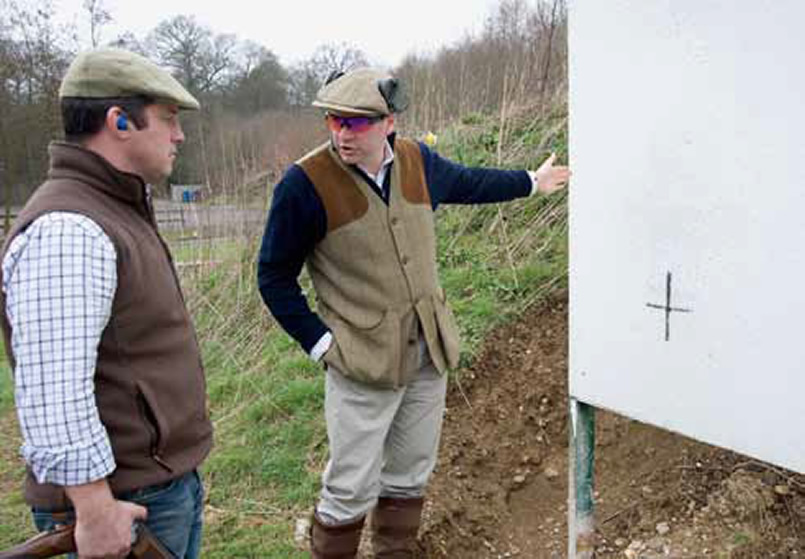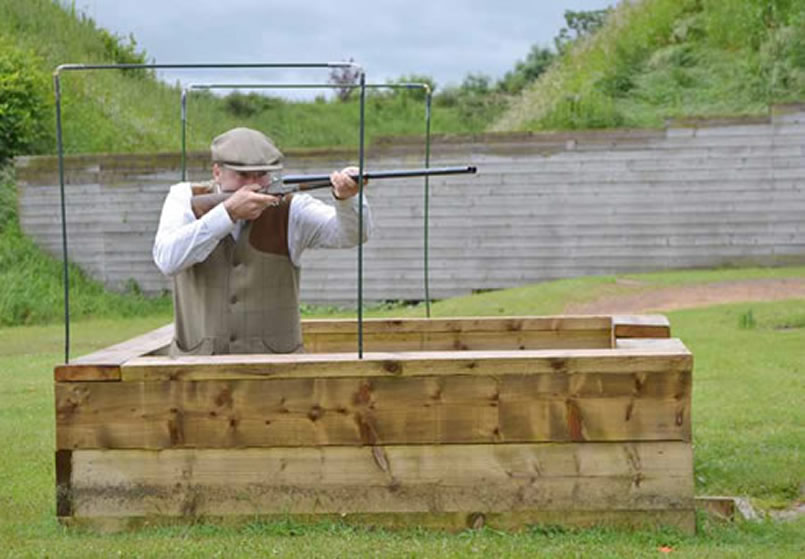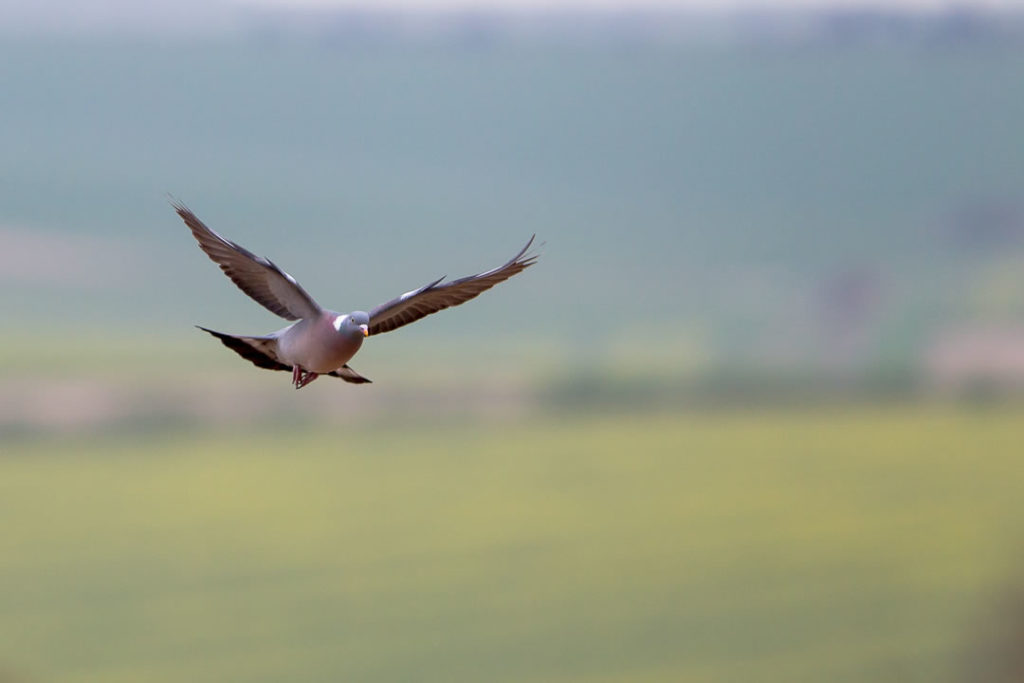One of the questions I’m often asked is ‘How do you choose a shooting instructor?’. Great question.
Let’s break this down into three sections:
- You – what you’re looking for/where you’re at
- The Instructor – things to look out for
- My Recommendations
You
Clay or Game?
Being a shooting instructor myself, the first question I ask is this: what do you actually want to get out of those shooting lessons that you’re proposing?
Many people who come to see me and if I’m honest, they turn up, and they have no real idea of what they’re trying to achieve. It’s much easier if you have got a clear goal of what you’re trying to achieve.
You can normally quite quickly narrow down whether you’re trying to improve your Clay shooting or your Game shooting? There are people who are trying to improve both, but it’s generally best to concentrate on one, to get the best out of the instructors that you’re seeing.
Novice or Experienced Shot?
I think the next thing that you need to do is be incredibly honest with yourself and try and work out exactly where you fit in that whole spectrum of novice to experienced shot. If you’re a novice shot for example, it’s pretty pointless coming to see a super specialized clay instructor – the chances are you’re going to waste their time and your money, try to be clear as to where you actually fit in.
If you’re an experienced shot and you’re looking to perhaps move from shooting normal pheasants to really high pheasants, then your specialist instructors are well worth the money. Likewise if you are a B class shot and you’re looking to get A or AA, then again, I think that’s where the specialist boys kick in.
Another thing that I frequently come across is people wanting guns fitted / wanting to know whether they’re mounting the gun correctly, etc etc. Again, there are specialists in these areas, and on the other side there are instructors out there who try to be jack of all trades which I’m not a fan of. Personally I will recognise my depth of knowledge and often pass clients on to other people – particularly in the clay shooting world, as I’m definitely not a clay shooting instructor, as a result I will pass clients on to other people who I know will take them further and faster so to speak. But generally speaking, if you’re a novice shot, the need for a specialist is usually less pronounced.
The Instructor
Experience
So at this point you’ve narrowed down to game/clay, and novice/experienced – and have a full understanding of what you’re looking for. Perhaps you have a bit of a shortlist of instructors in your head, and certainly you’ve got an idea of where you’re trying to go and what you want that journey to be.
The next thing I’m going to start looking at is experience, this is massively important. One thing I definitely wouldn’t overlook is your local shooting school – particularly for novices. I think the local shooting schools have a massive depth of talent which is often underestimated. I was a senior instructor at E J Churchill for very nearly 10 years – eight hours a day, six days a week. I saw a huge range of different clients with all abilities. From total novices having never shot before, right through to people who were incredibly capable shots where most of us look at them and say, ‘Well why does he/she want a lesson?!’
Shooting grounds have an extensive wealth of knowledge that shouldn’t be overlooked. That experience is absolutely irreplaceable – I would start by looking for that experience and those people that have been in the game a long time.
Reputation
That leads on quite nicely to reputation. Reputations are hard earned, so they shouldn’t be underestimated. People who have got big reputations have usually earned them over many many years – and so I think it’s really important that you look at the ‘signals’ on reputation – that could be articles they have written, videos about them, how they are received on social media – a whole spectrum of things that you can now look at.
Flexibility
Once you’ve got that whole picture, what you’re looking for is someone you can click with, someone that’s got good flexibility.
Don’t be frightened to pick the phone up and speak to these people. Find out:
- Do they come across as flexible in their approach?
- Are they happy to take on new ideas?
- Are they happy to teach different methods?
We’re not all the same, we will all shoot slightly differently. A good instructor will bring the best out in that client by tailoring their teaching approach and methods to suit their shooting style.
I often get involved with teaching other instructors. Nobody is 100% right. There will always be somebody that knows a little bit more than you out there and somebody that’s got a different view. I think the sort of instructor that you’re looking for is someone who will take criticism, who is used to communicating not just to clients, but to other instructors. In the instructor classes I run, one of the things I always encourage is if you don’t understand or disagree with something, you put your hand up and say ‘I disagree / that’s wrong / I don’t think that’s something we should be doing’. Ultimately what that leads to is a better all-round instructor who becomes much more capable. Again, shooting schools naturally generate that kind of environment, where instructors can do that – and I personally particularly enjoy getting involved in that environment.
Once you’ve got down to your final few…
Cost
Cost can’t be ignored. I think there’s a double-edged sword with cost. There are lots of people out there who I see spend thousands and thousands of pounds on guns, and then can’t shoot them to save their life.
My advice is spend as little as possible on the gun and spend your money on learning how to shoot it properly. Once you can shoot it very capably, then spend the money on a more expensive gun.
Coming back to instructor costs – usually the more in demand instructors, unfortunately will be more expensive. It’s a somewhat supply and demand situation. So if you look at somebody and they’re expensive, the chances are they’re expensive for a reason. And so it comes back to my initial point of where you are in that novice/experienced spectrum – can you get the full advantage of paying that extra money to see that guy, or are you better starting out with a shooting school and then progressing to a more expensive, specialised guy later on.
Equally there are lots of instructors out there that are very cheap. The problem with cheap is you can easily end up buying twice – so be cautious.
My Recommendations
I suppose I can’t really finish this without making some concrete recommendations of people that I would use as instructors in the UK.
I’m bound to offend some people by not mentioning them – that’s definitely not to say they’re no good. But the guys that I’m going to recommend are guys who I have personally come across, who I know are capable, who can do their job.
I’ve broken it down into clay and game:
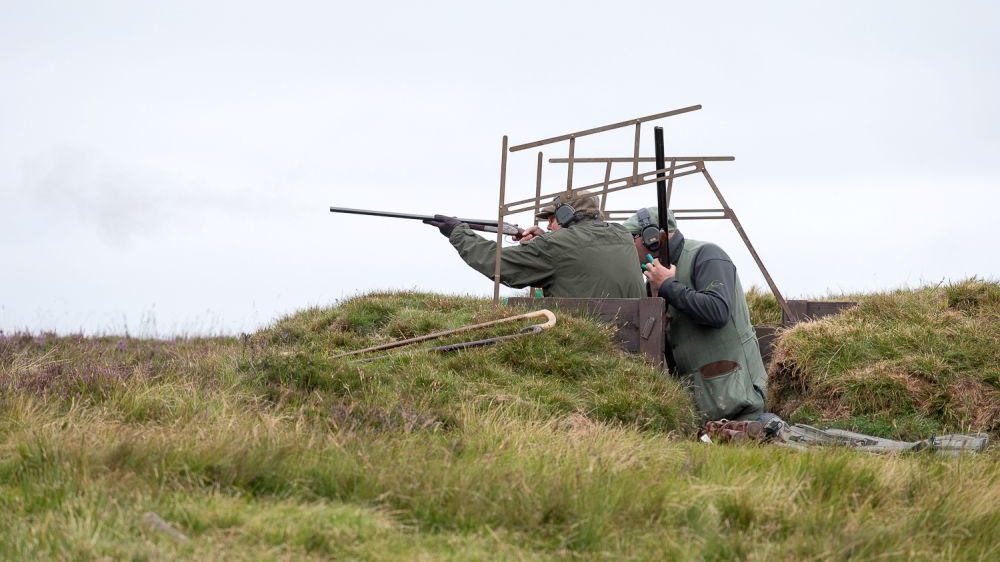
Game
I’m not going to name myself!
Steve Turner from the Royal Berkshire Shooting School, a young guy but very capable, very knowledgable, been in the game a long time. He has done that whole shooting school thing – literally been up and down that valley at Royal Berkshire many many times, so again, very capable.
Simon Ward – a good friend of mine, incredibly capable shot and extremely good instructor and gun fitter, one of my top top links and top people I would recommend game shooting wise.
I should mention Calvert Sporting’s own Darren East – Darren has been with us a number of years now, very capable, probably seen more grouse and extreme pheasants shot than many instructors will in their lifetime. Does hundreds of days in the field.
John Hegren at Bisley. Largely renowned as one of the few people who can cross from game to clay and back again – very capable.
Gordon Robinson – probably my wildcard, not to be overlooked. I think Gordon’s a very capable game instructor; I know he doesn’t teach much, but well worth having a lesson with.
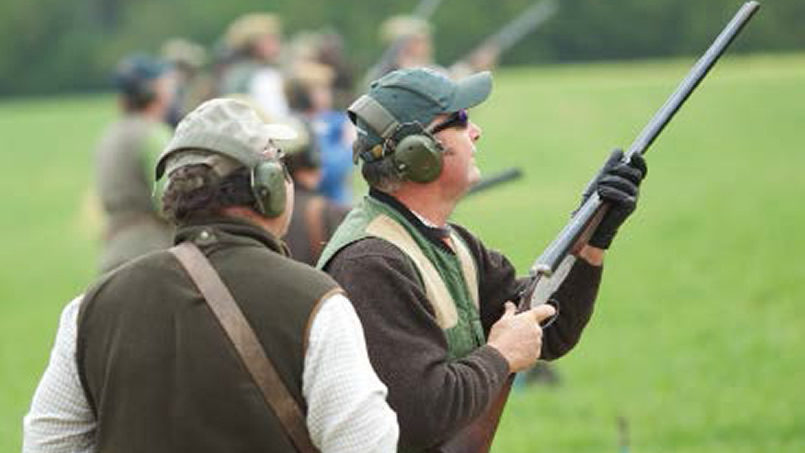

Clay
My two go-to clay instructors, who I work very closely with are Dave Beardsmore, who works out of Doveridge, and Ed Solomons. They will often send me gun fits and bits and bobs and I’ll send them clients. Both very capable guys.
Don’t overlook Robert Cross, at Royal Berkshire. Robert is very capable, good technical knowledge.
Richard Faulds, many of you have heard me rave about Richard – just because personally he’s one of the most technically competent shooters out there, when you watch him shoot everything is just right as it should be, incredible shot. I think he’s largely retired from instruction now but if you can sneak a lesson in with Richard then I think he’s well worthwhile.
Huw Stevens, Barbury – again, another one not to be overlooked. Very capable, very knowledgeable guy. Very quiet approach, but you know somebody that I would definitely rate.
I’ll say it again – I’m sure there are other very capable guys out there; I’ve given a list of people I know and who I’ve seen teach and who are capable.
Lastly… don’t be afraid to switch
One of the things I must stress – if you make a choice of an instructor and you feel it’s not going as it should be, don’t be afraid to change. I think anybody who is reluctant to allow you to change or move to somebody else probably isn’t worth being with. It’s got to work for you, you’ve got to feel like you’re progressing, you’ve got to feel like it’s worth the effort you’re putting in.


